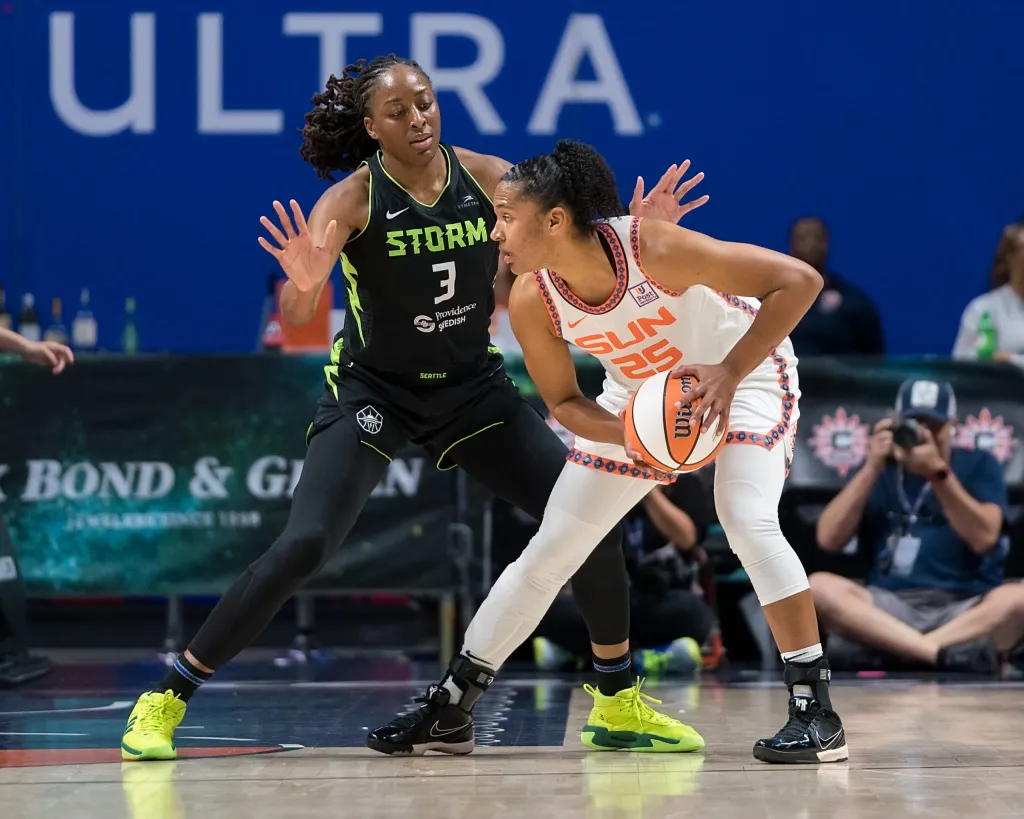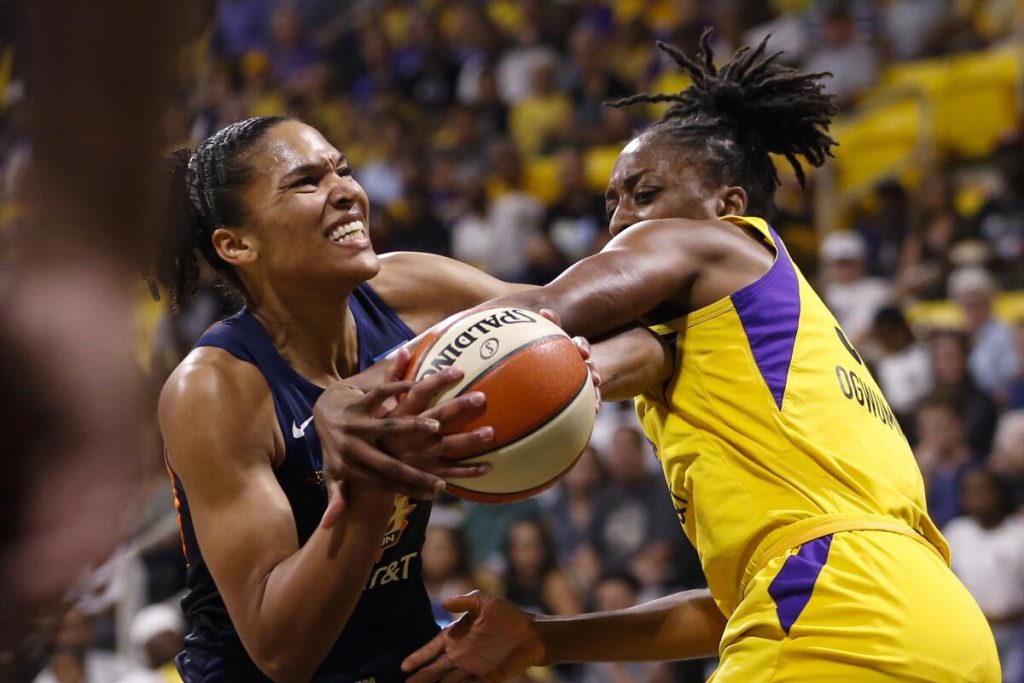A new global women’s basketball league is taking shape, and it’s already drawing elite WNBA talent with an unprecedented compensation model. Project B, set to launch in November 2026, will feature six teams of 11 players competing on a traveling tournament circuit across Asia, Europe, and the Americas. The league promises to revolutionize professional women’s basketball economics by offering salaries starting at $2 million—potentially reaching seven figures—plus equity stakes that give players ownership in the league’s future success.
WNBA MVP finalist Alyssa Thomas became the second marquee player to commit to Project B this week, joining six-time All-Star Nneka Ogwumike. Thomas, who led the Phoenix Mercury to the WNBA Finals this past season, brings a decorated 12-year career including five All-Star selections and two Finals appearances with the Connecticut Sun. “Alyssa is the kind of player and person you build around,” said Project B’s chief basketball officer Alana Beard. “Her leadership, competitiveness and professionalism elevate everyone around her. As one of the most respected players in the world, she represents the new era of player partnership and global competition that Project B stands for.”
The league’s November-to-April schedule strategically avoids conflict with the WNBA season, positioning itself as a complementary rather than competing venture. However, the financial incentives are substantial enough to raise questions about long-term player loyalty and whether top athletes might eventually choose Project B over the established American league. The traveling tournament format across three continents also represents an ambitious logistical undertaking that will test international appetite for women’s basketball at the highest level.
Project B has faced early turbulence, with Maverick Carter recently pulling out of the venture. Despite this setback, the league continues to move forward with its recruitment efforts and organizational development. The real test will come in determining whether the global market can sustain multiple premium women’s basketball leagues, and whether Project B’s player-first model—combining unprecedented salaries with equity ownership—can successfully challenge the WNBA’s 28-year dominance in professional women’s basketball.

For players like Thomas and Ogwumike, Project B represents both financial opportunity and professional risk. The equity stake model means athletes aren’t just employees but stakeholders in building something new, potentially creating generational wealth if the league succeeds. Yet the venture remains unproven, with questions about sponsorship sustainability, fan engagement across diverse international markets, and whether six traveling teams can generate the competitive depth and storylines that keep audiences invested over a full season.
The coming months will reveal whether Project B can secure additional star commitments and finalize its operational infrastructure ahead of the November 2026 launch. What’s already clear is that the landscape of professional women’s basketball is shifting, with players increasingly demanding—and receiving—compensation models that reflect their value and give them agency in shaping the sport’s future.

